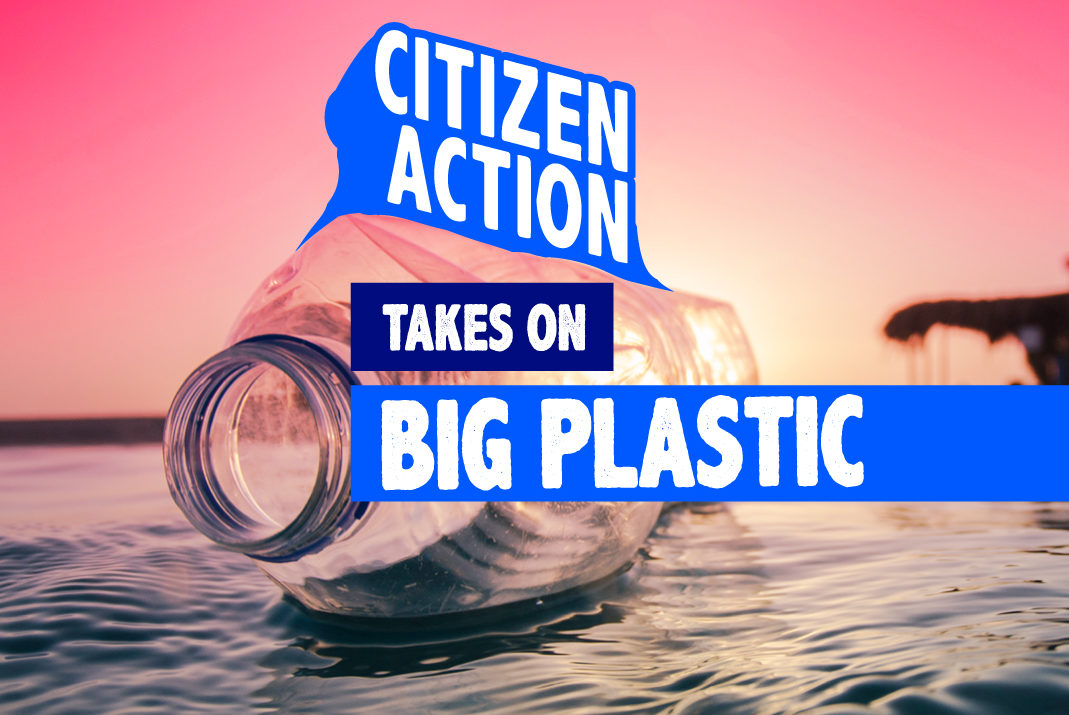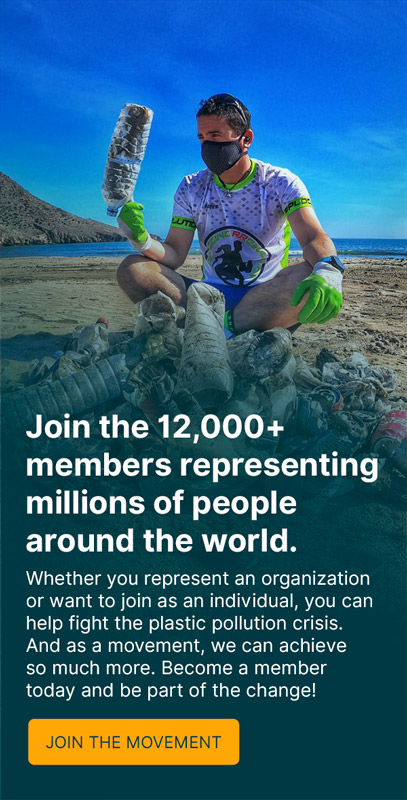On Thursday 20th of February two 'Plastic Pacts' were released in France and the Netherlands. These 'pacts' are voluntary agreements led primarily by industry groups committing to increased recyclability of packaging materials. Two organisations from the #breakfreefromplastic movement have issued responses to the launch of these pacts. In France, Zero Waste France & Surfrider Europe issued their response calling for binding political measures. Whilst in the Netherlands, the Recycling Netwerk published their response, again demanding firm legislation to tackle the plastic pollution crisis. You can find both of these statements below as well as on the respective websites.
Recycling Netwerk's response to the Dutch pact:
Dutch “Plastic Pact” may increase recycling, but it won’t solve the plastic pollution
The Plastic Pact of the Dutch government and 80 plastic producing companies will lead to more efficient recycling, but it won’t solve the plastic waste problem, the Belgian-Dutch environmental ngo Recycling Netwerk Benelux says today.
The Dutch secretary of state responsible for environment, Stientje van Veldhoven (D66, social liberals) presents a Plastic pact concluded with 80 companies on Thursday.
“Every initiative to tackle the plastic problem is welcome. But the voluntary recycling agreements in the pact will only slightly reduce the pollution caused by a plastic production that spiralled out of control”, director Rob Buurman of the Dutch-Belgian ngo says. “The Plastic Pact does not bring the much needed system change to deal with plastics in a different way”.
The target of qualitative recycling of 70% in the pact is ambitious and good. But it should be written in a law, not in a voluntary agreement that cannot be controlled by the government, Buurman says.
All targets of the Plastic Pact aim for 2025. “The Dutch government should make agreements that they can verify in the actual governing period until 2021”, Rob Buurman insists.
The Pact will not lead to less plastic litter or less plastic soup. It encourages so-called bio-based plastics, but these pollute as much as any other plastics.
“These kind of voluntary agreements are too little and too late. We’re in 2019. The Dutch government should urgently make firm legislation to make the plastic producers responsible for all clean-up costs, enlarge the deposit-return system to small plastic bottles, and introduce legally binding reduction targets for plastics, Recycling Netwerk concludes.
Rob Buurman, director Recycling Netwerk Benelux rob.buurman@recyclingnetwerk.org +31 616 40 10 40
Press contact: Tom Zoete, communication Recycling Netwerk Benelux tom.zoete@recyclingnetwerk.org +31 616 10 10 50
Zero Waste France's response to the French pact:
National Pact on plastic packaging : NGOs point the urgent need for binding political measures
The French Ministry for the Environment and several voluntary companies are signing a National Pact on Plastic Packaging.
A voluntary pact insufficient to deal with the extent of plastic pollution
Every year, the production and consumption of plastic materials in the world is higher than the previous year. The disposable packaging sector is one of the main drivers of this growth. In France, it absorbs 45% of all plastic consumed nationally and represents 60% of the plastic waste produced. The sector’s forecasts do not show any signs of a downturn: global plastic production is expected to increase by 40% in the next 10 years and disposable packaging accounts for a third of this increase.
In this context, the Voluntary Pact on Plastic Packaging signed today at the Ministry seems not to be sufficient to reverse this trend of exponential growth. While it includes some commitments regarding the progress of plastic recycling, it does not contain any quantified target for a net reduction in the quantities of disposable plastic packaging placed in the market.
Above all, it is a "voluntary" Pact, which will therefore not apply to all economic actors but only to those stakeholders who consider themselves bound. It cannot therefore be a substitute to proper public policy that results from democratic debate and applies to all.
The need for political action on the plastics frontline
Antidia Citores, spokesperson for Surfrider Foundation Europe: "At a time when nearly 25,000 citizens are taking up the challenges of the Ocean zero application to reduce their daily plastic impact and prevent marine pollution, it is more than time for public authorities to take real binding legislative measures to reduce plastic pollution at source in compliance with EU obligations and environmental emergency".
"While the beginning of the year has been marked by worrying political setbacks in the fight against plastic pollution, we expect from the government binding measures to reduce single-use plastic, which can lead the way and set the ambition for all the stakeholders," adds Laura Châtel, advocacy officer at Zero Waste France. "The plastic reduction target cannot be flexible and voluntary”.
At the end of January, the Senate reviewed, within the framework of the PACTE law, the plastic product bans planned for 2020, even though they were formally adopted this very same year. At the same time, the first version of the government’s draft « Circular Economy » law, which was circulated in the press, contained no measures relating to plastics. France has positioned itself as a leader in the fight against plastic pollution at European level during the negotiations on the Plastic Directive, a leadership that should be reflected in its domestic policy.
To reverse the trend and address the problem of plastic pollution at its roots, the NGOs are calling for:
- A national target for the reduction of disposable plastic packaging ;
- economic and regulatory support measures to encourage bulk sales and reuse systems for packaging ;
- Single-use plastic products bans (cups, straws, crockery, etc.) already voted by the National Assembly to be maintained, strengthened (extension of the ban on cups and food containers in collective catering) and effectively implemented;



